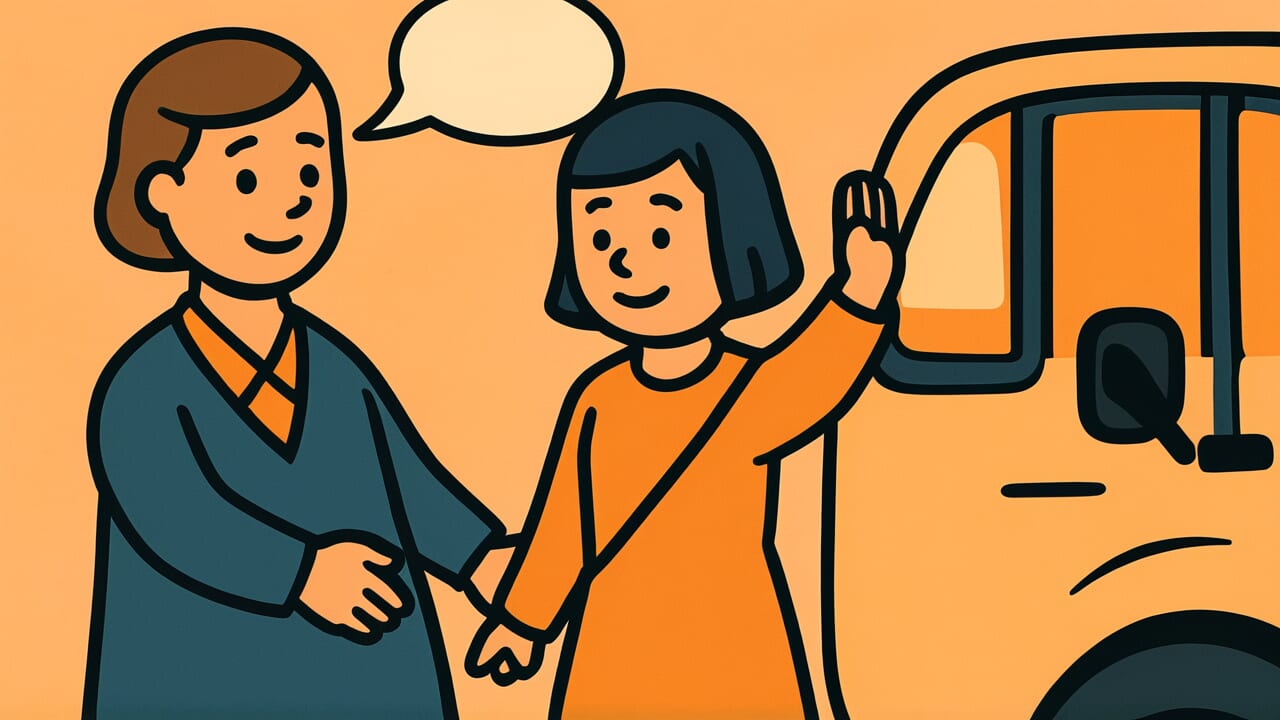How to Read “Obligation to others over obligation to parents”
おやのおんよりぎりのおん
Meaning of “Obligation to others over obligation to parents”
This proverb teaches that we should value obligations to non-family members over the natural debt we owe our parents. The debt to our parents is certainly great and should never be forgotten. However, it is a natural obligation we receive from birth.
In contrast, obligations to others arise when people outside our family help us in social life. Because there is no blood relationship, the responsibility to repay these debts carries more weight.
This proverb is used when prioritizing repayment to mentors or benefactors, or when explaining the importance of keeping social trust. The parent-child bond is unbreakable, but relationships based on obligation depend on our actions to maintain them.
This is why we must approach them with sincerity. Even today, this saying reminds us not to forget gratitude to those who helped us and to cherish our social credibility.
Origin and Etymology
No definitive written records exist about the exact origin of this proverb. However, it is believed to have spread among common people during the Edo period.
Let’s examine the structure of this proverb through its contrasting expressions: “obligation to parents” and “obligation to others.” Obligation to parents is a natural debt from blood relations, received from birth. Obligation to others refers to debts received from non-family members in social life.
In Edo period Japanese society, human relationships beyond blood ties supported the social foundation. These included the samurai code and merchant credit transactions. While parent-child bonds were naturally valued, relationships formed by choice also carried great weight.
These included master-disciple relationships, lord-vassal relationships, and business trust relationships.
This proverb likely emerged from values that cherished self-built relationships rather than relying solely on blood ties. Obligation to parents is received from birth. But obligation to others is earned through our actions and repaid through our will.
This contains the awareness of becoming independent as a person and fulfilling responsibilities in society.
Usage Examples
- My master gave me a chance when I had nothing, so following “Obligation to others over obligation to parents,” I should work for my master now
- That person really helped me out, so as they say “Obligation to others over obligation to parents,” I want to repay them no matter what
Universal Wisdom
“Obligation to others over obligation to parents” touches on the essence of humans as social beings. We are all born from parents and raised by them. This is biological necessity, and parental love is natural, rooted in instinct.
However, human society cannot exist on this alone.
Human relationships beyond blood ties have built civilizations and nurtured cultures. Masters pass skills to disciples, seniors guide juniors, and friends help each other. These chosen relationships require mutual will and effort. This is what makes these bonds precious.
This proverb has been passed down for generations perhaps because humans yearn for independence. While under parental protection, we remain children. But we become true adults by entering society, building relationships with others, receiving favors, and returning them.
Valuing obligation to others means taking responsibility for the life we have chosen.
Blood relations are given to us, but obligations are built by us. Humans do not simply accept their given fate but carve out their lives through their own will. Our ancestors embedded this universal truth in this proverb.
When AI Hears This
Parental love has the certainty of “you won’t be abandoned no matter what.” In other words, parents remain parents even if you don’t repay the debt. In game theory, this is called a complete information game. It’s a game where outcomes are predictable.
Obligation-based relationships are different. The relationship might break if you don’t repay the debt. This uncertainty is what matters.
What’s interesting here is how the human brain values “things at risk of being lost” more highly. Behavioral economics shows that the pain of loss feels about twice as strong as the joy of gain. Obligation-based relationships always carry the tension of “might be lost.”
This creates strategic value in the act of repaying debts.
Furthermore, repaying obligations sends a powerful signal to those around you. By showing sincerity even to people without blood guarantees, you spread the reputation that “this person is trustworthy.” Filial piety to parents is often seen as expected.
But fulfilling obligations appears as “selective sincerity” that greatly enhances social credibility.
In other words, obligations to others feel heavier because the strategic calculation of human society is at work. The presence of risk increases the value of reciprocal behavior.
Lessons for Today
This proverb teaches us how to take responsibility in life. Parental love is given unconditionally, but relationships you build in society depend on your own actions.
In modern society, human relationships have become fluid with job changes and relocations. This makes it even more important to remember gratitude to those who helped you and properly repay them. This isn’t just courtesy. It demonstrates your character.
The boss who guided you as a mentor, the friend who reached out when you were in trouble, the client who gave you a chance. Remember your debts to these people and repay them when you can.
These accumulated actions become your credibility and open new doors.
Gratitude to parents is naturally important. But at the same time, approach relationships beyond blood ties with sincerity. This is what it means to live as an independent adult in society.
Each trust relationship you build creates the path to a rich life.


Comments